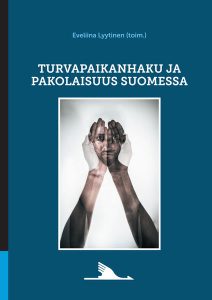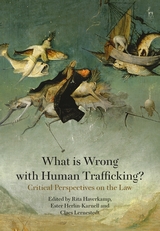 Mikaela Heikkilä, Hisayo Katsui & Maija Mustaniemi-Laakso, A human rights reading of the responsive state, in International Journal of Human Rights: Disability and vulnerability, published online 22 January 2020
Mikaela Heikkilä, Hisayo Katsui & Maija Mustaniemi-Laakso, A human rights reading of the responsive state, in International Journal of Human Rights: Disability and vulnerability, published online 22 January 2020
ABSTRACT
Universal human rights of all are complemented with particular, targeted protection of some, especially those that traditionally have been left behind. By juxtaposing the ideas of universality and particularity, the article studies vulnerability as a particularising tool within human rights with a comparative approach to the influential vulnerability theory by Martha Fineman. By outlining the similarities and the differences between the two approaches of vulnerability theory and human rights project, the article sheds light on how the particular protection needs of persons with disabilities play out in the universalistic logic of vulnerability. The article argues that both universal and particular obligations of responsive states – and responsive humans – are needed as a way of materialising substantive equality for persons with disabilities as vulnerable legal subjects. Such obligations cannot be codified in full detail, but the intrinsic essence of rights requires each right to be interpreted in context and with regard to the particular individual vulnerabilities and resilience of each person. In operationalising the obligations arising from such rights, the human rights project and the vulnerability theory complement and reinforce each other in terms of specifying the rationale and the detailed benchmarks for state action.
 Mikaela Heikkilä and Maija Mustaniemi-Laakso, ‘Turvapaikanhakijoiden haavoittuvuuden huomioiminen Suomen ulkomaalaisoikeudessa ja käytänteissä’ [The recognition of the vulnerability of asylum-seekers in the Finnish asylum law and practices] in Eveliina Lyytinen (ed.),
Mikaela Heikkilä and Maija Mustaniemi-Laakso, ‘Turvapaikanhakijoiden haavoittuvuuden huomioiminen Suomen ulkomaalaisoikeudessa ja käytänteissä’ [The recognition of the vulnerability of asylum-seekers in the Finnish asylum law and practices] in Eveliina Lyytinen (ed.),  Elina Pirjatanniemi, ‘Victims of Trafficking in the Migration Discourse: A Conceptualisation of Particular Vulnerability’ in Rita Haverkamp, Ester Herlin-Karnell, Claes Lernestedt (eds.)
Elina Pirjatanniemi, ‘Victims of Trafficking in the Migration Discourse: A Conceptualisation of Particular Vulnerability’ in Rita Haverkamp, Ester Herlin-Karnell, Claes Lernestedt (eds.)  Elina Pirjatanniemi, ‘
Elina Pirjatanniemi, ‘